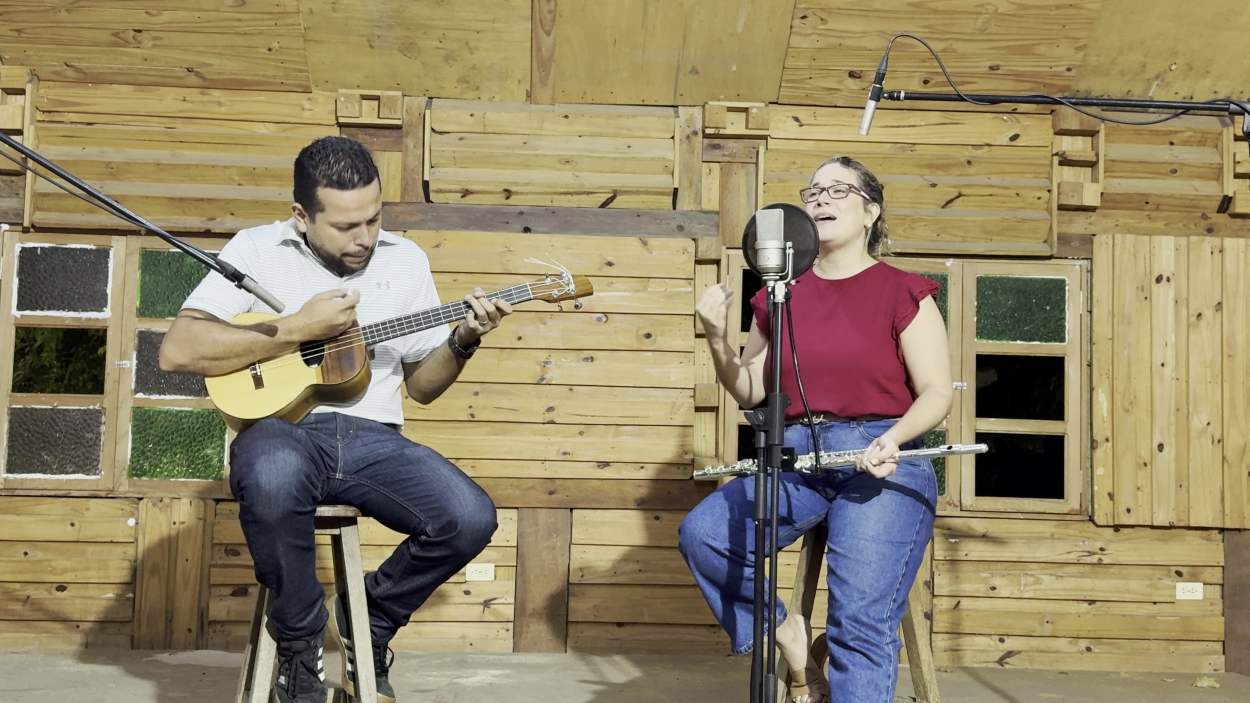Music from Brazil's Grupo de Compositores da Bahia
Music from Brazil's Grupo de Compositores da Bahia
Up-and-coming musicians performed Brazilian chamber music by influential composers of the 1960s.
In March, a group of up-and-coming musicians performed chamber music written by members of Brazil’s Grupo de Compositores da Bahia at Americas Society.
In 1966, Brazil-based Swiss composer Ernst Widmer led a group of colleagues and students at the Universidade Federal da Bahia in Salvador to found the Grupo de Compositores da Bahia (GCB). This was a “group without a school,” whose main aesthetic creed was to go “against any and all declared principles.” The GCB quickly became the focus of intense artistic activity within the University, and its composers strove to connect with wide audiences and the rich traditions of Salvador’s popular music.
The first piece on the program was Fernando Cerqueira’s Metamorfose, an award-winning composition which featured three interconnected movements that present “situations of conflict and tension, taken to a climax, [which] are not resolved romantically, but rather through a proposed expressive solution that needs to be communicated.” The second part of the program included two compositions by Alda de Oliveira entitled Widemeriana I and Widmeriana II. Oliveira composed these pieces in homage to Widmer, whom Oliveira described as “my teacher, not of composition but of music methodology, music appreciation, music theory, and analysis.” Widmeriana I is based on one of Widmer’s favorite musical themes, while Widmeriana II presents a variation using the lyrics and melody of a traditional song, Minha Sabiá. Oliveira chose this song for Widmeriana II because it “speaks of a person who says that every night he cries for someone. So, I thought it appropriate to pay homage to someone as dear to us as Ernst Widmer.” The other vocal work featured on the program was Reminiscências by Ilza Nogueira. The composition revolves around the presentation of Walt Whitman’s poem That music always ‘round me in both English and Portuguese. Nogueira originally composed the piece for soprano Martha Herr, whose dual Brazilian and American heritage inspired the dual setting in translation. The concert also included Widmer’s sonatina for cello and piano, Op. 41, a Piano trio by Jamary Oliveira. Trio relied on rhythmic elaborations as a foundation, with each movement following a different rhythmic premise. For example, the first movement exhibited rhythmic interaction between symmetry and asymmetry. The second movement revealed repeating rhythmic patterns while the third movement had tension between references to popular music and more abstract musical themes.
Composer and alumna of the GCB Ilza Nogueira provided guidance in musical selection and access to many of the scores. She directs the research project “Marcos históricos da composição na Bahia” (Historical Landmarks of Contemporary Composition in Bahia) which publishes abundant research on the GCB and its composers, as well as musical scores available at www.mhccufba.ufba.br.
[[nid:47754]]







